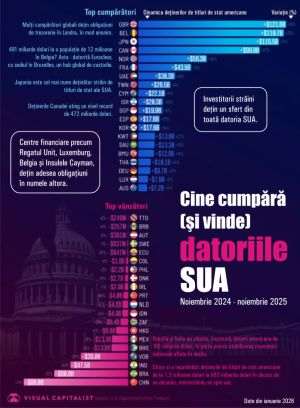Romanian thieves are in the top of shoplifters in Germany, according to an article recently published by the Berliner Zeitung daily, which cites official data from the Ministry of the Interior in Berlin. In statistics, along with citizens from Poland, Georgia, Moldova, Bulgaria and Ukraine, Romanians lead the top of criminals who act in an organized manner, repeatedly targeting retail chains throughout German territory.
According to official statistics presented by the cited source, at the end of last year, out of the 18,140 shoplifters arrested by German police, 1,188 were Romanians, a number that places us in third place, after German and Polish burglars. In fourth place are thieves who declared themselves citizens of the Republic of Moldova, followed by those from Ukraine and Georgia. The fact that Romanian criminals occupy the third place on the podium of shoplifting perpetrators in Germany represents an aggravation of the situation from two years ago, when gangs of thieves from our country were only in fifth place in the top of retail robberies, being surpassed by Poles, Georgians, Moldovans and Germans.
The phenomenon has gained momentum and is putting enormous pressure on retail trade, especially in large cities such as Berlin, where professional thieves attack stores in broad daylight, without hesitation and with disturbing efficiency. German police officers told the cited source that gangs of thieves are not simple groups of opportunists, but well-structured networks, with clear hierarchies, precise tasks and mafia-like coordination. They carefully analyze stores, supervise staff, operate as a team and disappear immediately after they have appropriated their merchandise. This is organized crime in its purest form, where roles are meticulously divided, and the leaders of the groups are often based outside Germany's borders, coordinating actions in the Balkans, Southeast Europe or the Caucasus.
German police say that these individuals are not immigrants looking for a better life, but criminals who deliberately enter Germany to steal. Many of them do not have identity documents on them and thus take advantage of the bureaucratic system, the loopholes in the expulsion legislation and the lack of reaction from some countries of origin that delay or avoid cooperation with the federal authorities. As a result, return procedures fail and the thieves remain in Germany and commit dozens or even hundreds of crimes, without the state being able to effectively prevent them.
German traders are desperate, and their frustration is also shared by former investigators. Klaus Nachtigall, a former expert on organised crime at the criminal police (LKA), told the source that the authorities in Berlin have lost control. The prosecutor's office is overwhelmed by thousands of cases of shoplifting, the police are understaffed and the criminal gangs are becoming increasingly violent. Thieves do not hesitate to fight back when caught, and simple theft often turns into full-blown robbery.
"It is a grim picture, a tragedy in Berlin that is unfolding before our eyes,” says Klaus Nachtigall.
Peter Schroder, a legal expert at the German Chamber of Commerce (HDE), is calling for urgent and decisive action. "For companies in the retail sector, the current situation is unbearable. We finally need a more consistent and tougher approach, especially against thefts committed in an organised, professional manner by gangs,” he told the Berliner-Zeitung.
Schroder believes that the justice system and the police urgently need more staff and better equipment to tackle this problem at a national level. "With better equipment, we will no longer have to set the wrong priorities in the future,” said Peter Scroder, adding: "Shoplifting is not a minor crime. We cannot leave retailers alone in the face of these constant violations of the law.”
In all this chaos, the silent victims are ordinary customers. Every stolen product means a loss for retailers, and these losses inevitably translate into higher prices on the shelf. Indirectly, all consumers are footing the bill for an outdated system that is failing to stem the tide of crime from outside.
Although any generalization is dangerous and incorrect, the reality is that gangs of thieves from certain Eastern European regions, including our country, represent a serious problem at this time for German retail, but also for federal authorities, and silence in the face of this phenomenon does not make it disappear, but, on the contrary, encourages it.
















































